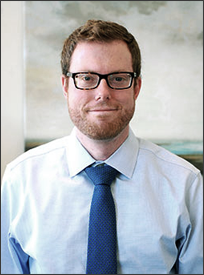Brewer awarded oncology research grant
Benjamin Brewer, director of clinical psychology services for the School of Medicine Department of Hematology and investigator at the University of Colorado Cancer Center, has been awarded a two-year grant to assess the treatment of chronic myeloid leukemia (CML), a rare blood cancer, at four oncology practices across Colorado, including University of Colorado Hospital, St. Mary’s Hospital, Memorial Hospital and Poudre Valley Hospital.
The National Comprehensive Cancer Network (NCCN) Oncology Research Program, in collaboration with Pfizer Independent Grants for Learning & Change, awarded the grant to Brewer.
Bone marrow transplants or chemotherapy were once the only treatment options available for CML, and until recently, survival rates weren’t remarkable. But new tyrosine kinase inhibitor medications have transformed CML treatment—patients are now living full lives thanks to targeted therapy. “CML used to be one of the more difficult blood cancers to treat. Now, almost all patients respond to the new medications,” said Brewer.
The new study will test an intervention for oncology teams designed to address concerns relevant to patients with CML and the doctors who treat them. The intervention is designed to improve monitoring of the gene marker BCR-ABL1, improve the choices physicians make based on data from appropriate monitoring of the gene marker, and teach physicians how to better address the problem of patients’ forgetting to take their medication.
Although vastly better than previous treatment approaches, tyrosine kinase inhibitor medications require lifelong monitoring and adherence. The NCCN guidelines currently recommend testing for BCR-ABL1 every three months after initiating therapy, regardless of treatment response. A recent report found that only 31 percent of community physicians and 52 percent of academic medicine physicians in the United States were correctly tracking this vital marker of treatment response in peripheral blood. Instead many are performing unnecessary bone marrow biopsies to conduct monitoring on a suboptimal timeline.
Through interactive educational presentations, monitoring of BCR-ABL1 testing rates, and providing feedback about this rate to each practice, Brewer hopes to change physician and medical team behaviors at all four practices over two years and in turn, improve adherence to the NCCN guidelines for the treatment of CML.


